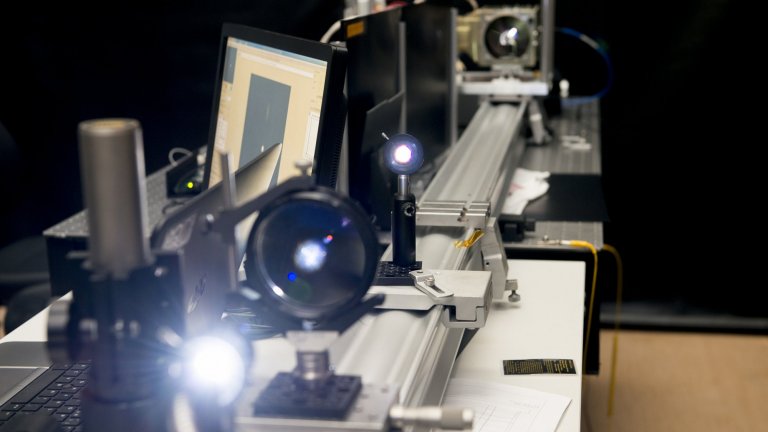
© Sébastien Chastenet / OMP / IRAP / CNRS Images
View the mediaScientific news
The Perseverance rover has now confirmed the suitability of its landing site: Jezero crater really did contain a lake, into which a river flowed through a delta 3.6 billion years ago.

© Sébastien Chastenet / OMP / IRAP / CNRS Images
View the mediaAfter landing on Mars in February 2021, the Perseverance rover has just revealed the first results of its investigations. Its mission was to explore its landing site, the bottom of the Jezero crater with a diameter of 35 kilometres. In fact, it has confirmed what scientists suspected: that some 3.6 billion years ago the crater was home to a lake several tens of metres deep. The lake was fed by a river via a delta. These results were reported on Thursday, 7 October in an article published in the journal, Science, whose main author is Nicolas Mangold, a planetary scientist and Research Director at CNRS.
The Perseverance rover, which is studying sedimentary rocks on Mars, was the result of international co-operation involving more than 300 people in France under the leadership of the National Centre for Space Studies (CNES). These people mainly helped to develop the SuperCam, an extraordinary tool which the rover is equipped with, that allows it to observe objects a few centimetres in size located several kilometres away. In all, Perseverance is fitted with around 20 cameras, designed to withstand the extreme conditions of the journey and the stay on Mars.
The spacecraft is tasked with studying its environment, but also with searching for possible traces of past life, and should return to Earth with about 40 samples taken from Mars in the early 2030s. In the meantime, there is no doubt that it will continue to reveal more secrets from this planet that fascinates us so.
Our work is guided by the way scientists question the world around them and we translate their research into images to help people to understand the world better and to awaken their curiosity and wonderment.